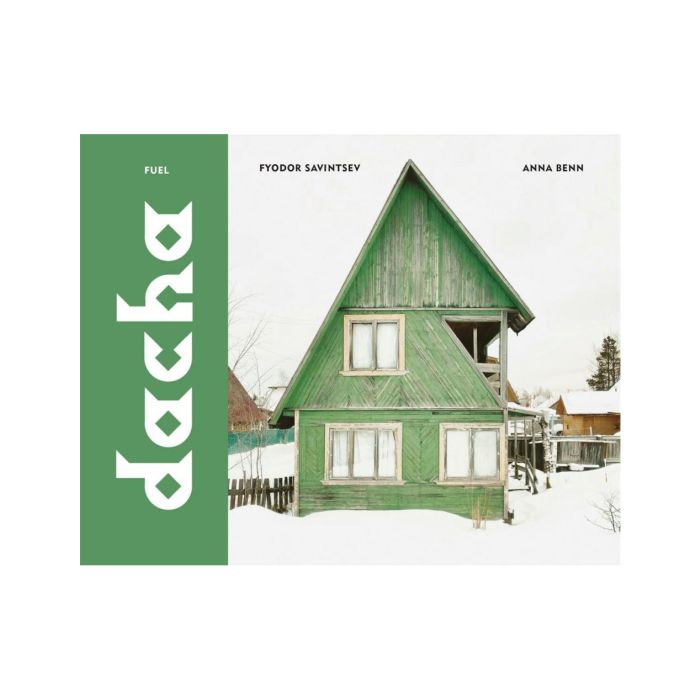My Cart
Your cart is empty
Looks like you haven't made your choice yet.
- Subtotal
Dacha

The Soviet Country Cottage
- Fuel
- by Fyodor Savintsev, Anna Benn, Damon Murray, Stephen Sorrell
More Information
| Publisher | Fuel |
|---|---|
| ISBN | 9781916218499 |
| Author(s) | Fyodor Savintsev, Anna Benn, Damon Murray, Stephen Sorrell |
| Publication date | October 2023 |
| Edition | Hardback |
| Dimensions | 160 x 200 mm |
| Pages | 240 |
| Language(s) | English ed. |
Description
A ‘dacha’ is a country house, made of wood, used by Soviet citizens to escape the rigors of the city for rural idyll. Widespread in the countries of the former USSR, this important cultural and architectural form has been largely ignored academically. In Dacha Fyodor Savintsev documents this particularly Russian phenomenon, his photographs constitute a unique record of a rapidly vanishing fairytale wooden world.
The word ‘dacha’ has been used to describe constructions ranging from grand imperial villas to small sheds. Originally bestowed by the Tsar to reward courtiers, this custom continued following the revolution, with Soviet cooperatives building dachas for their members. Supposedly for the benefit of labourers, in reality they were destined for those favoured by the State, including famous writers, architects and artists – from Pasternak to Prokofiev. The fall of the Soviet Union accelerated their use, as economic uncertainty forced city dwellers towards self-sufficiency. The dacha tradition has survived Revolution, war and the collapse of Communism, becoming an integral part of life in the process.
Using contemporary photographs to showcase these uniquely individual buildings for the first time, alongside an introduction explaining their historical and cultural context, Dacha is the only publication of its kind.

Dacha
